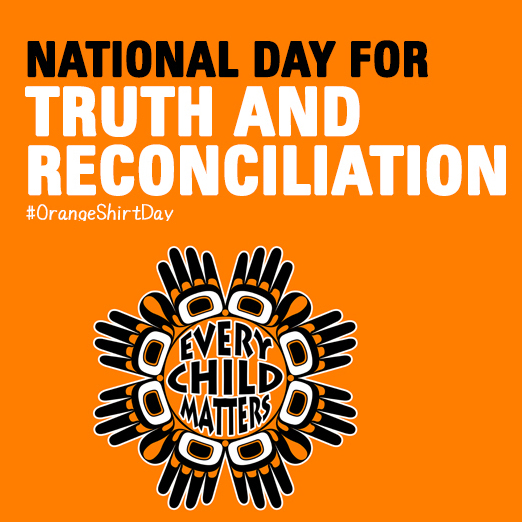VACFSS has gone a step further and implemented its own policies to ensure that children and youth remain connected to family, community and culture while in care with VACFSS.
The Vancouver Aboriginal Child and Family Services Society (VACFSS) will observe the inaugural day of Truth and Reconciliation in Canada on September 30. This day honours the lost children and survivors of residential schools, their families and communities.
Recommendation #80 of the Truth and Reconciliation Commission report states: We call upon the federal government, in collaboration with Aboriginal peoples, to establish, as a statutory holiday, a National Day for Truth and Reconciliation to honor Survivors, their families, and communities, and ensure that public commemoration of the history and legacy of residential schools remains a vital component of the reconciliation process.
Following the locating of unmarked graves at the Residential school site in Tk’emlups First Nation, VACFSS practitioners were called upon to participate in a collective pledge to Indigenous children and youth and whose families we engage in a service plan. This collective pledge represents our shared commitment to the children, youth and families served through VACFSS. As child welfare practitioners, we see the impact of colonial policies in the intergenerational adversity faced by our families. As Canadians, we have been profoundly impacted by the detection of the unmarked graves through ground penetrating radar.
In 2020, VACFSS’ Chief Executive Officer was part of an advisory committee at the University of British Columbia that recommended and implemented a statement of acknowledgement of the role that social work has had in implementing policies that have harmed Indigenous children and families. Included was a statement of commitment to teach the truth about Canadian social welfare policies that have harmed and continue to harm Indigenous Peoples and communities. As a country, we also need to stand together to protect our ecosystems that teach us about our interdependence on all living systems.
VACFSS has worked diligently to identify and implement sections in the CFCSA that are intended to be restorative. VACFSS has gone a step further and implemented its own policies to ensure that children and youth remain connected to family, community and culture while in care with VACFSS. The agency is well positioned to meet the calls to action in child welfare and has moved beyond to report on outcomes through a multiyear reporting process led by each program.
While Canada has undertaken many commissions and inquiries that began the process of dismantling the structures and narratives that sustain racism and colonial policies, we have a long way to go toward ensuring inclusion and equity for Indigenous Peoples. Truth and Reconciliation will continue in all aspects of our lives as Canadians. This is what will allow Indigenous children, youth and families to live with cultural safety.











